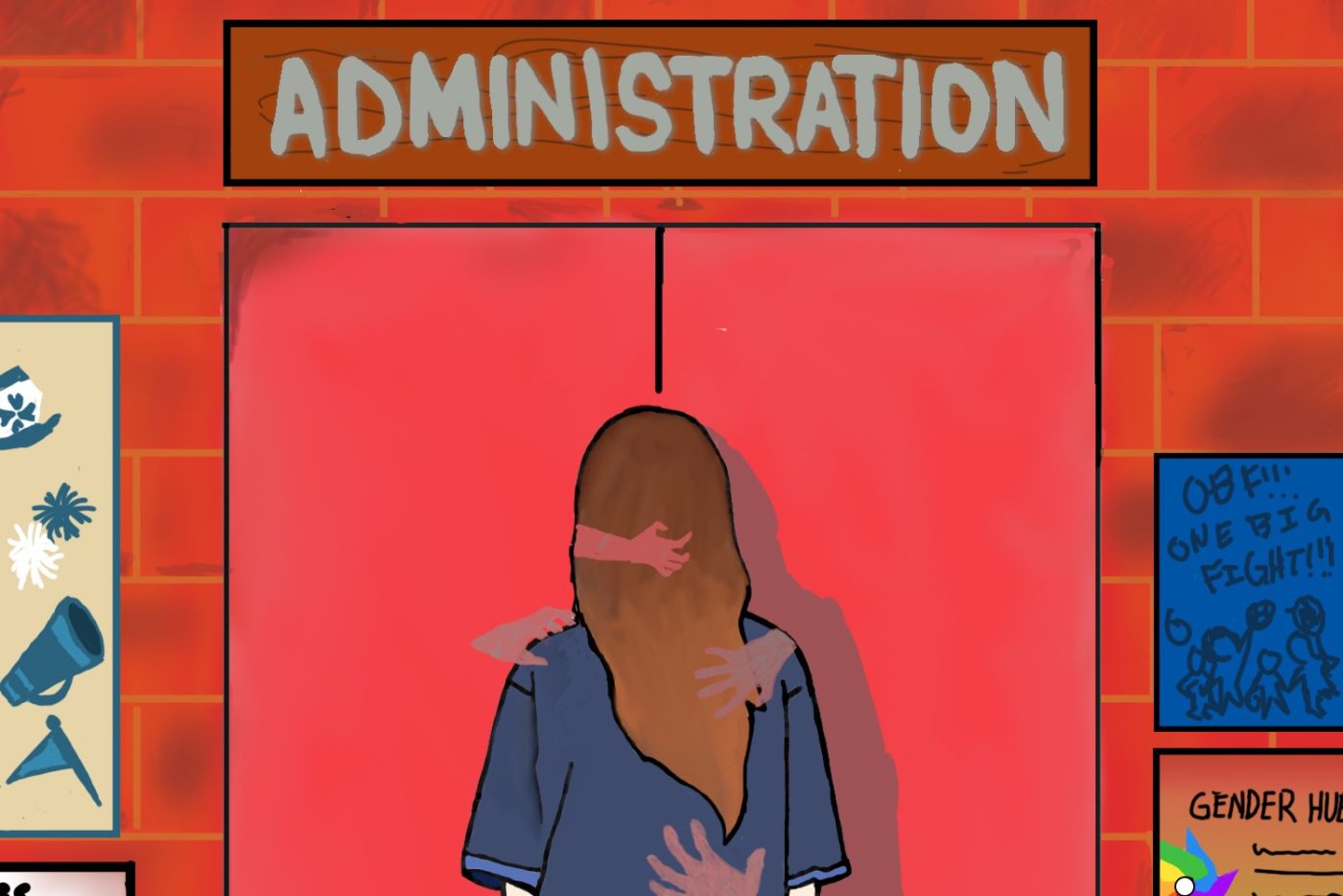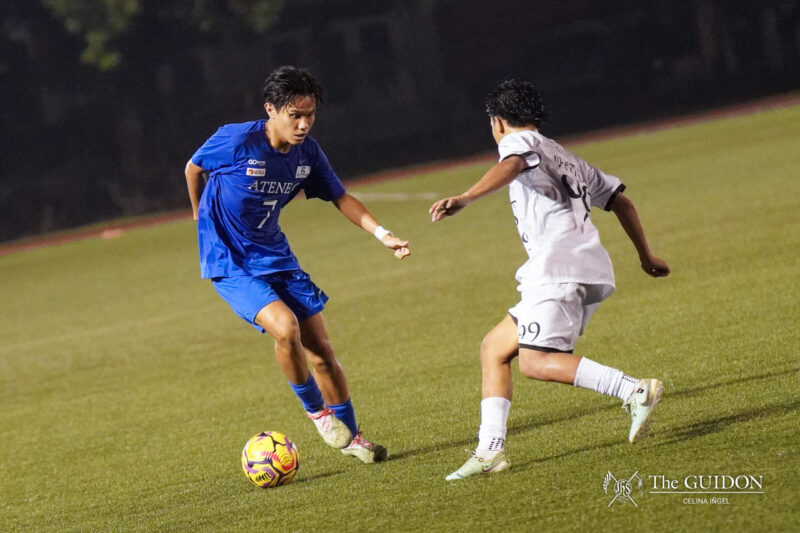THE PAST months have seen a number of reforms to the University’s processes for dealing with sexual harassment—from the establishment of the Loyola Schools (LS) Gender Hub to the pending Anti-Sexual Harassment Manual. At the heart of these developments and reforms is a desire to improve the University’s systems for processing sexual harassment concerns and, in turn, make the Ateneo safer for both survivors and the rest of the community.
These efforts come at the heels of the sexual harassment allegations that have surfaced within the University time and again, which brought into question how the administration processes these complaints. In October 2018, the University witnessed a spike in online sexual harassment allegations against professors. In October of this year, an allegation raised on social media against a professor sparked an on-campus protest that demanded further transparency on the University’s handling of sexual harassment cases. The aftermath of the protest saw the formation of Time’s Up Ateneo, a coalition of University students, faculty, and alumni that lobbies for structural reforms in the school’s anti-sexual harassment protocols. Among the reforms they seek are an external audit on existing regulations and more accessible counseling options for survivors.
The movements initiated so far were the result of the community’s confusion, anger, and mistrust with the way sexual harassment cases in the University have been handled so far. While pressing and working with the administration to make changes is necessary, the danger lies in forgetting about the experiences of the survivors themselves. Amid the storm of demands and vocalized anger, sexual harassment survivors must be empowered with the proper platforms to voice their concerns.
Blindsided
Though there are channels for sexual harassment survivors to process complaints, the University’s public responses to sexual harassment issues may be discouraging for those who wish to come forward. Many of the University’s recent moves to address the issue of sexual harassment publicly have been met with criticism.
After the October 8 protests, the University Marketing and Communication Office (UMCO) released a statement assuring the community that the school was taking action on formal sexual harassment complaints. For others, coursing this message through the UMCO made it seem like the problem of sexual harassment was a mere public relations issue.
Some have also been dissatisfied with the information from the administration about complaints that have been filed. In response to the community’s calls for transparency, University President Jett Villarin, SJ, also released a memorandum saying that only seven formal complaints were processed by the Committee on Decorum and Investigation (CODI), a body that was established in 2017 and tasked with investigating sexual harassment complaints against Loyola Schools employees, among other cases. However, the statement did not explain what the administration defines as a “formal complaint,” a point that caused many to cast doubt upon the memo’s claims.
To address the Ateneo community’s mistrust with the administration, many have called for the University to discuss sexual harassment cases and the processes involved in these situations more openly. Commission on Anti-Sexual Misconduct and Violence (CASMV) Co-commissioner Aleiana Duque says that the administration should publicly communicate this issue through events like public forums. “They’re supposed to be serving us, just as the student government serves the student body, but they don’t particularly make the effort to actually reach out to us,” she says.
So far, the LS Gender Hub facilitates conversations about fostering safe spaces upon request. According to Gender Hub Case and Companion Coordinator Angelique Villasanta, safe space conversations were also held for this year’s Talakayang Alay sa Bayan and for the Philosophy Department and the English Department—after accusations against professors from both of these faculties. She adds that they are also looking to open an online forum where participants can share their thoughts on controversial topics.
One step forward, two steps back
Despite the existence of systems that attempt to address the issues of sexual harassment, the University can only improve these protocols by reflecting on how complainants can be treated better. Much of the criticism from sexual harassment survivors regarding these systems is directed at its impersonal and overly bureaucratic nature.
Sachi Siquijor (4 BFA AM) filed one of the seven formal complaints processed by CODI. However, she claims that the administration fails to resolve sexual harassment cases in a manner that considers the psychoemotional state of survivors following their experiences. “The institution has no recourse for the actual human cost that the complainants have to pay as a result of the abuse, physical, mental, or psychological,” she says.
Siquijor further remarks that she felt as if she was “threatened” and “intimidated” by the panel present at her hearing with CODI. “Imagine, having to narrate the painful experience again in front of strangers, with a lawyer there to tell you what they can or cannot do for you. None of those answers will include a practical or even human offer to remedy the scars from the experience,” she says. While the committee must remain professional, this sentiment points to a need for the administration to change the way they communicate with complainants.
Siquijor expresses that the processes she went through should have been modified to foster healing. She adds that this goes both ways, as both survivors and the accused need “healing psychologically, mentally, [and] physically.” “There are names to these people and we should treat them as such,” she says.
Silent no more
Such frustrations with the current proceedings surrounding sexual harassment cases call for a substantial platform for survivors to voice their concerns to the administration.
Siquijor stresses the importance of a safe space wherein survivors can freely discuss their experiences without judgment or concern for their privacy. “That space needs to be secure and comforting so that victims know that they can be honest while also receiving help if they should request it,” she adds.
The LS Gender Hub’s care services address survivors’ need to heal from the experience through one-on-one processing sessions even if they do not intend to file a case. Villasanta adds that the Gender Hub does provide post-processing care services if ever students request it.
“I know there’s a lot of distrust already that the students feel towards the admin, but [I ask for] at least just the trust that the Gender Hub is here for them, and that this is a safe space,” she says.
Efforts such as the Gender Hub and Sanggunian’s CASMV are meaningful steps in the right direction towards providing potential sexual harassment complainants with various outlets for the different types of support they need. However, the dissatisfaction of many with the treatment of their cases reveals a need for the administration to review how it interacts with complainants throughout its processes.
In the same way, CODI can benefit from sensitivity training from the Gender Hub in interacting with survivors and regular internal communications between CODI and the Gender Hub can better improve how cases are processed and handled, especially with regard to the survivor’s well-being.
The University must also make the effort to create avenues for admin-led dialogue about issues of sexual harassment. The true establishment of a “safe space” for sexual harassment victims begins with a concerned, community effort. Only when all members of the community are involved in making the Ateneo a safer place can we call the campus a place for students to learn and grow without fear of being silenced.







